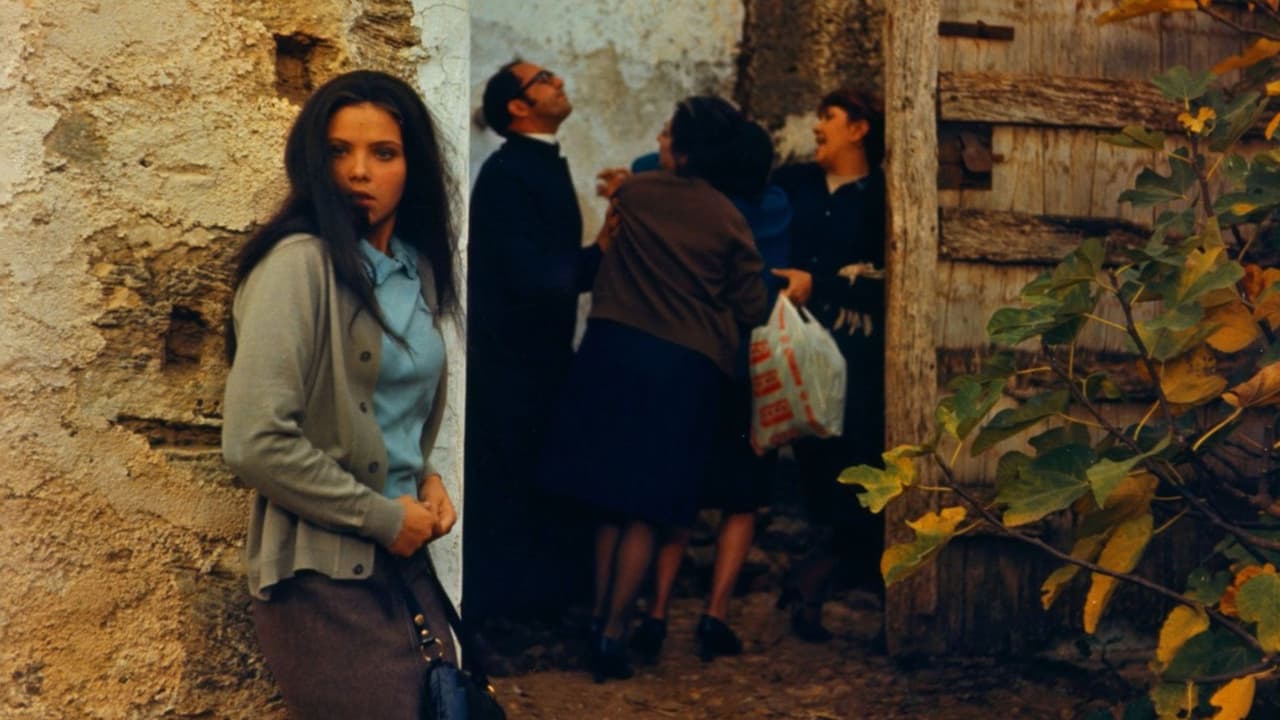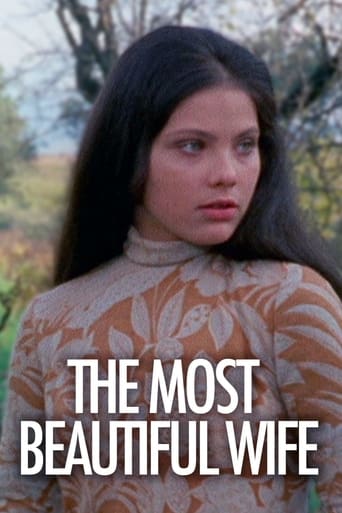NekoHomey
Purely Joyful Movie!
Usamah Harvey
The film's masterful storytelling did its job. The message was clear. No need to overdo.
Lidia Draper
Great example of an old-fashioned, pure-at-heart escapist event movie that doesn't pretend to be anything that it's not and has boat loads of fun being its own ludicrous self.
Bob
This is one of the best movies I’ve seen in a very long time. You have to go and see this on the big screen.
Bezenby
Damiano Damiani created Euro-crime films, but his films come from a different angle, set in conditions of absolute reality and full of real people making real choices. No fast guns solve problems here. I've really come to appreciate films like The Case is Closed, Forget About It and Day of the Owl. Don't get me wrong - I love a car chase and a gun battle, but Damiani's films have there place up there too.Fifteen (or fourteen) year-old Ornella Mutti here plays Francesco, a peasant girl who draws the eye of local mob hood Vito. Vito looks up the local Mafia don, who has just been arrested along with most of his cronies. The don wants to work with Vito as Vito was kidnapped and beaten by a rival mob, but never opened his mouth. The don advises Vito to get married and Vito has chosen Francesco.After seeing off another suitor with intimidation, Vito woos Francesco, and a wedding seems to be on the horizon. It's also about this time that Vito starts acting like a total dick, and finds himself surprised that Francesco isn't the kind of girl who is going to take any of his crap. She shames him in front of his mates, jilts him at the altar, and even worse, the rival gang ridicule Vito using the information that a peasant girl stood him up at the altar. Vito of course then resorts to kidnapping and raping Francesco as a show of power, and is once again surprised to find she goes straight to the police and accuses him of rape.This is Sicily however, and people there fear reprisal from the Mafia. The townsfolk turn on Francesco and even her family do not want to speak to the police. Francesco finds herself alone in trying to bring Vito to justice...alone apart from that rival Mafia gang...It's possible that Damiani is making some sort of statement about the sexual revolution with this one. We know Francesco is in the right, and yet the women of the village attack a teenage girl who agrees with her. Francesco speaks with a woman who was in a similar situation but married her rapist because that's what was expected of her. A local priest blames her parents for being uneducated and not hiding the act of sex from her. Even her parents do not want to go against the established rules and class system. Only the young seem to empathise as Francesco rebels against the town, and still I'm simplifying the outcome of this on the characters of the film.This was Ornella Mutti's first film and it's amazing to see how she plays Francesco - a naïve teenage girl who believes in love but will not let that stand in the way of justice, or her being an individual. Her dogged attempts to bring Francesco to court are mixed with the emotions of a teenage crush as she constantly gives Vito a chance to repent, which also give way to pure rage as he constantly treats her like a child.Also outstanding are two actors I thought were just bit part players -- Gaetano Cimarosa as Francesco's cowardly father, and Enzo Andronico (from many a giallo) as the slimy lawyer trying to keep Vito in check. Don't miss this one - Ennio Morricone manages to create another emotional soundtrack that adds to the atmosphere.
zorzalcg
Damiano Damini, the director of "La Moglie Piu Bella", two years earlier,in 1968, had made a movie about "la Mafia" titled "Il Giorno Della Civetta" starring Franco Nero, Claudia Cardinale and Lee J. Cobb. It was a stark tale, showing the helplessness of the law enforcers in front of the resignedly accepted power of the Mafia. In 1970 he had another project about the Organization, the story, loosely based in real facts, of the first Italian woman that refused the reparation by marriage of her lost honor. Instead she had the courage to denounce the violence that she suffered, at the local police station. It was very important to choose someone special for acting the leading role. Damiano Damiani chose the teenager Ornella Muti (14 years old), without previous experiences in front of the camera, to play the humbled girl, Francesca Cimarosa, who, at first, is very shy and submissive but gradually becomes a strong character person, fighting for her dignity even against her own parents that are frightened because of intimidation of the Mafia. It was said by Ornella Muti in several interviews, that she was making company to her older sister Claudia Rivelli, who was herself in search of a role in pictures when, suddenly, by pure chance, was saw by Damiani and that was all. Overnight, the teenager that was dreaming about being an actress, was in front of the camera, in an exigent leading role, making her cinematic debut under the implacable and experienced hand of Damiani. In my opinion it was a superb choice. Ornella was beautiful, shy, reserved, intense, brave and she was capable of projecting these qualities to the screen, reaching this way, the heart and the interest of the audience. An authentic natural talent, not always appreciated during the long career of the diva, always eclipsed by the sheer beauty and sexiness of her physique. Alesio Orano, future first husband of Ornella Muti in real life, plays the part of the nephew of the "local capo". At that time, he was a heartthrob, handsome, long dark hair and blue eyes. He is the dream love of the young heroine but also he possesses a streak of cruelty and he is absolutely perfect in his role. Gaetano Cimarrosa is excellent, acting as the intimidated father and Pierluigi Aprá is very efficient as the local "carabinieri", a helpless but honest police officer. It was said that this film is about feminism, but I consider it a story that has to do with the basic human dignity and choosing to live without fear in a society whose ethical values are profoundly twisted by the existence of the shady and stealth hand of the organized crime.
tuco73
Starting from the surprisingly excellent "I am not scared" (strongly recommended), I started to become interested in Damiano Damani's movies and I was stunned to discover what a great and socially committed director he was! This movie surely ranks among his best. It deals with the condition of women in the regions of mafia, where mentality is so narrow and ignorant to become almost hilarious when not dramatic. The character played by the beautiful and very young Ornella Muti is a real marvel. In her village she is one of its kind: she is intelligent, sensible, has a strong temper, sense of justice and anti-conformist views. In other words she cannot easily merge in the social context she is growing in. The plot develops slowly and little by little one is sucked into the story thanks to a group of very good actors, a nice score by Morricone and mainly Damiani's masterful screenplay. The end is very touching, as the tears in the sensitive young girl represent the tragic but necessary result of a chain of events that it was impossible to stop. This movie, together with "L'istruttoria e' chiusa: dimentichi"; "Pizza Connection"; "Confessions of a Police Captain" and "Un uomo in ginocchio" should constantly pass through the Italian national TV schedules, as the lesson(s) is still far from being learnt.
lazarillo
Ornella Muti has always been an interesting actress. Like a lot of her Italian contemporaries--Eleanora Giorgi, Jenny Tamburi, Gloria Guida--she has been in a lot of "exploitative" roles and movies (in one movie of hers I saw, for instance, her character willingly loses her virginity to her own father), but unlike these other actresses she has also managed to turn in a lot of superb roles in more highbrow art films, and her career has thus lasted a lot longer. On the other hand, her courage in choosing film roles has also allowed her to endure a lot longer than a lot of American actresses who never want to risk doing anything that might be exploitative and as a result never do anything really interesting either. The director Damiano Damiani is the same way--he's done art films like this, on one hand, but some the most exploitative trash imaginable (like "Amityville Horror 2"), on the other, but his films are rarely less than interesting.This movie based on true story is about a young Sicilian girl (Muti) who is raped by the son of a Mafia don who is trying to force her to marry him by taking her virginity, but she instead goes to the police, which is something women just didn't do at the time (and something only a few brave souls in Sicily ever did to the Mafia). Muti is really good, which isn't that surprising perhaps, but so is her future husband, Alessio Oranio, who plays the mafioso, and who I had always pegged as a talentless pretty-boy. It may seem hard to believe the androgenously handsome Oranio would have to rape anyone (although it seemed to be his specialty for some reason--he also raped Jane Birkin in "May Morning", a drugged Elke Summer in "Lisa and the Devil", and Femi Benussi, kind of, in "The Killer Must Kill Again."). It's made clear in this movie, however, that the abduction and rape is a matter of pride, not sex, after this beautiful but poor peasant girl spurns the wealthy and vain young man's proposal of marriage.I don't want to give away too much more of the plot, but it is a well-directed and well-acted and ultimately very powerful film. It's not one of Muti's more exploitative roles (she was only fourteen at the time), but she had plenty of those too. Check this one out for sure.


